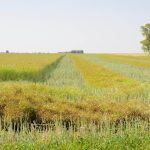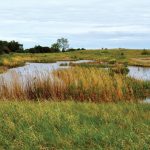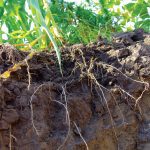
Tag Archives Sustainable agriculture

Grain sector plans new sustainability approach
Canadian Roundtable for Sustainable Crops to replace controversial code of practice with a new plan

ACC enters hopeful home stretch
Funding gives college a big boost towards ag expansion

Canola sector gets research funds boost
The federal government and canola sector team up for another five-year research cluster

College’s sustainable ag centre draws campaign commitments
ACC's planned ag programming hub a topic at pre-election debate

S-CAP projects confirmed
54 projects have been greenlighted for funding under the Resilient Agricultural Landscape Program

Tight S-CAP deadline raises concern
The new funding focuses on sustainability and food safety
Grant application deadline nears for livestock producers
Manitoba Beef Producers is urging its members to consider funding avenues that could benefit cattle farmers

S-CAP rollout getting mixed reviews
Newly announced funding streams target beneficial management practices for climate resilience and environment: government

Comment: Go for the carrot, not the stick
Regulations not the best move for real ecological progress

KAP members give two cents on federal sustainability strategy
Cost management and a local approach to policy dominate sustainable ag discussion at KAP’s spring advisory council meeting


